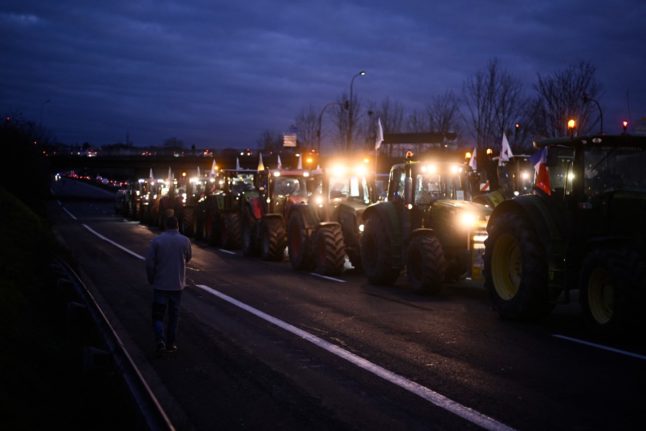“Tomorrow (Monday) Germany will get to grips with its package of measures,” Merkel said in Paris after an emergency summit on the global financial crisis of eurozone leaders hosted by French President Nicolas Sarkozy.
“We will do this together with France. Other countries too will also rapidly take measures so that … an important signal can be given to the markets,” Merkel said.
She gave no details of the package – the finance ministry said this would happen on Monday at the earliest – but press reports said it includes providing as much as €100 billion ($135 billion) in capital to shore up banks’ battered balance sheets.
In return the German state would take stakes in the banks, similar to a part-nationalisation announced by Britain last week, while Berlin would also provide as much as €400 billion in state guarantees to jumpstart stalled lending between banks, the reports said.
Taxpayers “have the right to expect that if they are contributing to the stability of the financial system that this will be honoured,” Merkel said in Paris.
The drying up of lending caused by the credit crunch, a problem which has worsened dramatically since the collapse of US investment bank Lehman Brothers last month, threatens to starve banks of cash and make them less willing to lend money to businesses and consumers in Europe’s biggest economy.
She said after Sunday’s meeting in Paris that the “tool box” of measures agreed in Paris by the leaders of the 15 countries sharing the euro currency plus Britain can “go some way to overcoming the financial crisis.”
“We are taking these measures … to keep the economy going, to guarantee people’s savings and to stabilise the financial system. This is our duty, even if it entails difficult decisions.”
Sources in Berlin said that Merkel’s cabinet would discuss the German package on Monday with a view to it going through parliament and becoming law by the end of the week – an aim that is far from certain in view of MPs’ misgivings. The details “will definitely not be announced today (Sunday), tomorrow at the earliest,” a finance ministry spokesman told AFP.
The head of parliament’s budgetary committee, Otto Fricke, said the guarantees would total around €300 billion and the capital injection around €100 billion.
“I know roughly the direction that it is going in,” Fricke told the Kölner Stadt-Anzeiger daily in an article to appear on Monday.
A week ago Berlin put together a 50-billion-euro rescue of Hypo Real Estate, the country’s fourth biggest bank, but this took the form of guaranteeing badly needed credit lines rather than the state taking a stake in the stricken commercial property lender.
Now though a drying up of the amount of liquidity held by German banks – as markets have tumbled in the past week and short-term lending has become even harder to secure – has forced a re-think in Berlin.
According to the Welt am Sonntag newspaper the capital injection alone would total more than €50 billion, while Handelsblatt reported that as much as €100 billion would be made available to stricken banks. It also became clear that the worst hit are not private German banks like Deutsche Bank but the Landebanks, the regional lending powerhouses that are owned by Germany’s 16 states, the reports said.
By shoring up Germany’s banks, Merkel’s government is attempting not only to calm stock markets – Frankfurt’s DAX lost more than a fifth of its value last week – but also to stop panic bank withdrawals by consumers and to prevent the crisis spreading to other sectors of the economy.
“We are not doing it in the interest of the banks but in the interests of people,” Merkel told the Bild am Sonntag in comments published Sunday. “Only action by the state is capable of restoring the necessary trust.”


 Please whitelist us to continue reading.
Please whitelist us to continue reading.